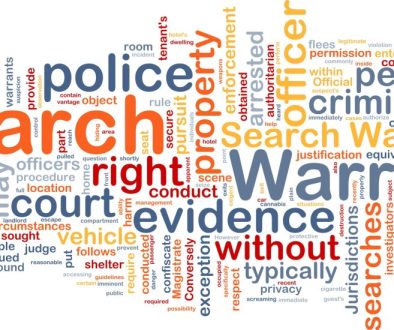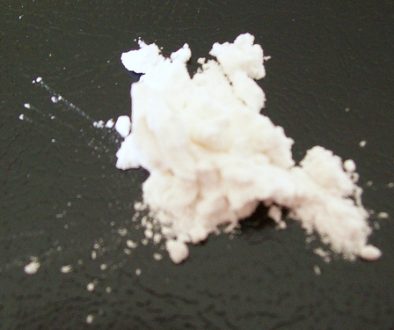Medical Marijuana (Cannabis) Compliance in Pennsylvania
These are the highlights from my presentation on Medical Cannabis Compliance in Pennsylvania at Dynamic Rehabilitation in Elkins Park. Our firm is always trying to educate through our formal presentation like this one, along with its books, videos and newsletters.
1. When Did Pennsylvania Legalize Medical Cannabis?
- April 17, 2016 Governor Tom Wolf signed Pennsylvania’s Medical Marijuana Act into Law
- The Medical Marijuana Act took effect on May 17, 2017
- Medical Marijuana now available through state licensed dispensaries
- Pennsylvania is the 24th state to adopt a Medical Marijuana Program
2. Who Is Eligible To Receive Medical Cannabis?
- A person must have a terminal illness, suffer from cancer, HIV/AIDS or the following conditions:
- ·Amyotrophic lateral sclerosis,
- ·Parkinson’s disease,
- ·Multiple sclerosis (MS),
- ·Epilepsy,
- ·Inflammatory bowel disease,
- ·Neuropathies,
- ·Huntington’s disease,
- ·Crohn’s disease,
- ·Post-traumatic stress disorder,
- ·Intractable seizures,
- ·Glaucoma,
- ·Autism,
- ·Sickle cell anemia,
- ·damage to the nervous tissue of the spinal cord with objective neurological indication of intractable spasticity,
- ·severe chronic or intractable pain of neuropathic origin,
- ·In addition to these conditions, Pennsylvania and New Jersey can approve additional debilitating medical conditions.
3. How Can An Eligible Person Obtain This Drug Treatment?
- In Pennsylvania, a patient who qualifies must obtain a doctor’s certification to enroll into the program.
- The doctor is only permitted to issue a certification if the physician completes a four hour course on medical cannabis.
- This physician certification must state that the patient is under the doctor’s ongoing care and that the patient is likely to receive a therapeutic or palliative benefit from the medical marijuana.
4. Obtaining & Management of Consumption – Noncompliance
- While a medical doctor can prescribe medical marijuana to an eligible patient who falls within the enumerated medical conditions, that doctor commits a misdemeanor of the first degree if he or she intentionally or knowingly or recklessly certifies that a person is able to lawfully receive medical marijuana and that is simply not the case.
- In addition to medical doctors and providers, any employee, financial backer, operator, or principal of a medical marijuana organization or research center commits a misdemeanor of the first degree if that person sells, dispenses, trades, or delivers medical marijuana to a person who is not permitted to receive it under the law. See 35 P.S. Section 10231.1301
5. Obtaining & Management of Consumption – Noncompliance
- It is also a criminal offense and a misdemeanor of the third degree if a patient or caregiver knowingly or intentionally stores medical marijuana in excess of the amount that is legally permitted.
- It is a misdemeanor of the second degree if a patient or caregiver knowingly gives his or her medical marijuana to a person who is not lawfully permitted to receive the drug. While it is a misdemeanor of the second degree for a first offense, it is a misdemeanor of the first degree for a second or subsequent offense. See 35 P.S. Section 10231.1304
- A person commits a misdemeanor of the second degree if he or she attempts to falsify or modify a medical marijuana identification card in an attempt to obtain the drug.
- It is also a misdemeanor of the second degree if a person uses another person’s identification card to obtain the drug (fake ID). All second and subsequent offenses constitute a misdemeanor of the first degree. See 35 P.S. Section 10231.1305
6. Where & When Can’t You Use Your Medical Cannabis
- Patients who qualify for medical marijuana may not do any of the following:
- Grow marijuana
- Drive under the influence of marijuana (DUI)
- Give or sell marijuana
- Possess marijuana on a school bus or on school grounds
- Use marijuana in a public place
- Smoke marijuana
- Utilize medical marijuana in any work place while performing dangerous activities
- Purchase food or drink infused marijuana
7. What are the approved forms of Medical Cannabis?
- In Pennsylvania, the following are acceptable forms of medical marijuana:
- Pill
- Oil
- Topical forms – gels, creams or ointments,
- Vaporization or nebulization (Dry Leaf)
- Tincture (eye dropper)
8. Illegal Possession of Medical Marijuana
- In Pennsylvania, the illegal possession of a controlled substance like marijuana (along with crack cocaine, heroin, PCP, or any other controlled substance) is a misdemeanor crime.
- Philadelphia is not prosecuting simple possession of marijuana but issuing citations (Fines). The City will treat the possession of under 30 grams as a violation of an ordinance but it technically remains a misdemeanor crime in PA
- A misdemeanor is much less serious than a felony offense as it does not typically expose a person to state prison time.
- Possession with the intent to deliver (PWID) or distribute in Pennsylvania under Title 35 § 780-113 (a)(30) is an ungraded felony which ranges in a criminal penalty from probation to a lengthy state prison sentencing depending on the weight involved in the allegation.
9. Illegal Possession of Medical Marijuana & Your Options
- You need to hire the right lawyer but understand that you have a number of options available to you!
- Expert Testimony & PWID Charges –Weight Isn’t Enough
- Actual vs. Constructive Possession
- Illegal Search & Seizure
- Your lawyer should asses the legality of the police contact that led to your arrest (illegal search and seizure) and your probability of success at trial.
10. Pre-Trial Diversion Programs
11. Driver’s License Suspension & Medical Marijuana Crimes
- All of these specific medical marijuana criminal offenses are graded as misdemeanors but are nevertheless serious because it would result in a criminal record if the person was convicted at trial.
- PennDot could suspend a person’s driver’s license based on the conviction.
- PennDot will suspend a person’s driver’s license for a drug conviction even if it didn’t involve a vehicle.
- The suspension is 6 months for a first offense
- New Jersey has a similar provision within its laws but leaves a license suspension to the discretion of the sentencing judge and it is not mandatory.
12. Medical Marijuana & Driving Under The Influence (DUI) in Pennsylvania
- In Pennsylvania a person is guilty of a drug DUI under Section 3802(d) if they are operating a motor vehicle and under the influence of any drugs or the combination of drugs or alcohol.
- Under subsection (d2), the prosecution doesn’t need to establish any specific amount (nanograms) just that the person was under the influence of drugs through direct or indirect evidence.
- 3802 (D1) (identified controlled substance) vs. 3802 (D2) (any combination of drugs)
- While a blood test can reveal the presence of a drug (legal or illegal) or alcohol, it’s important to understand that a person can still commit a DUI under Section 3802(d) even if the drug is legally prescribed!
- Pennsylvania’s Controlled Substance, Drug, Device, and Cosmetic Act (Title 35) specifically list Cannabinoids as controlled substance in Pennsylvania. Further, Section 3802(d) makes is crime in Pennsylvania for any person to drive or operate a motor vehicle while under the influence of any controlled substanc
- Section 3802 (d)(2) vs. 3802 (d)(3)
- This means that if this drug is found within a person’s blood following an arrest, it could lead to a conviction for DUI within the Commonwealth for DUI. While the prosecution would still need to establish the impairment element beyond a reasonable doubt, it could meet this burden through the police officer’s testimony regarding the person’s physical presentation.
-
- Impairment – Incapable of safely operating a motor vehicle



